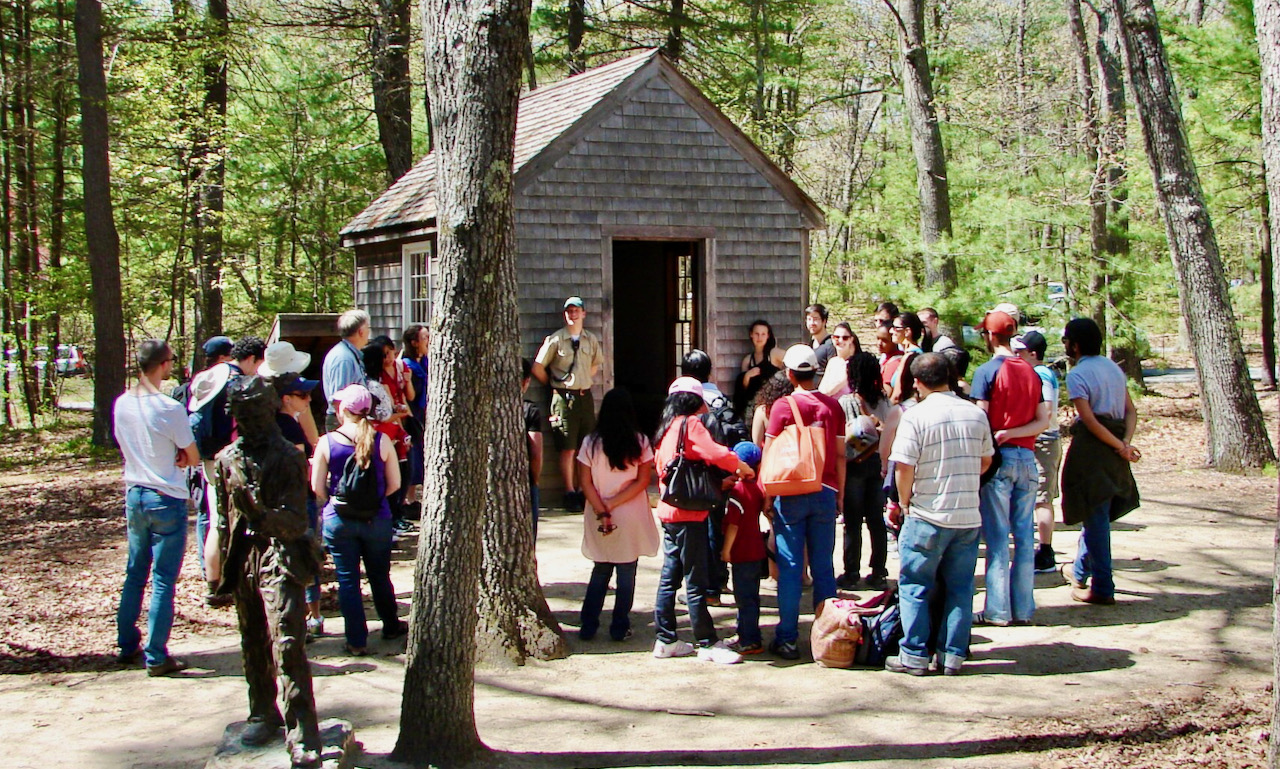Renowned as the former home of Henry David Thoreau and the inspiration for his book, Walden, Walden Pond State Reservation offers over 300 acres of park land primarily used for swimming and hiking. A National Historic Landmark and part of the Massachusetts Forests and Parks System, Walden is considered the birthplace of the American conservation movement.
Experience the connection with nature that inspired Thoreau while enjoying a day of swimming, walking around the famous pond, or boating out on the water. Open seasonally, the Walden Pond Visitors Center provides enhanced interpretation, connecting sites of significance to Thoreau enthusiasts. Be sure to visit the replica of Thoreau’s single-room cabin!
Following In Thoreau’s Footsteps
No place is more synonymous with Henry David Thoreau than Walden Pond. Thoreau first visited Walden Pond at the age of five, when his family was living in Boston. Years later, in his journal he recalled, “That woodland vision for a long time made the drapery of my dreams.”
In 1845 he was almost 28 years old and living with his parents and sisters. Inspired by his mentor, Ralph Waldo Emerson, he had begun writing, but yearned for a “sweet solitude” that he couldn’t find in the family home. Emerson owned a woodlot on the shores of Walden Pond, and he agreed to let Thoreau build a 10 x 15-foot house there. He moved in on July 4, 1845, and lived there for two years, two months and two days, explaining his departure by saying he had “more lives to live.”
During his sojourn at Walden, Thoreau matured as a writer and a naturalist. He made careful observations of the life around him, and wrote his first book, A Week on the Concord and Merrimack Rivers, a memoir of a camping trip he took with his late brother John. He lived alone, but he was not a hermit. His house was less than two miles from the center of Concord, and he often saw family and friends, both in town and at the Pond, while he lived at Walden.
After he moved back into Concord, many people asked him why he had lived in the woods, and he put his explanation into a series of essays that became his best-known book, Walden, Or Life in the Woods, published in 1854.
The pond itself was formed thousands of years ago by the melting of a mass of ice that had been buried during the last ice age. It’s big enough to qualify as a lake, but locals have called it a pond since the 1600s. The name “Walden” is thought to come from a location in England. Since 1975, Walden Pond has been under the stewardship of the Massachusetts Department of Conservation and Recreation. Visitors can hike, swim, and see the site of Thoreau’s cabin. A modern Visitor Center offers rest rooms, exhibits, a video by Ken Burns, a life-size replica of Thoreau’s cabin, and the Thoreau Society Shop.

